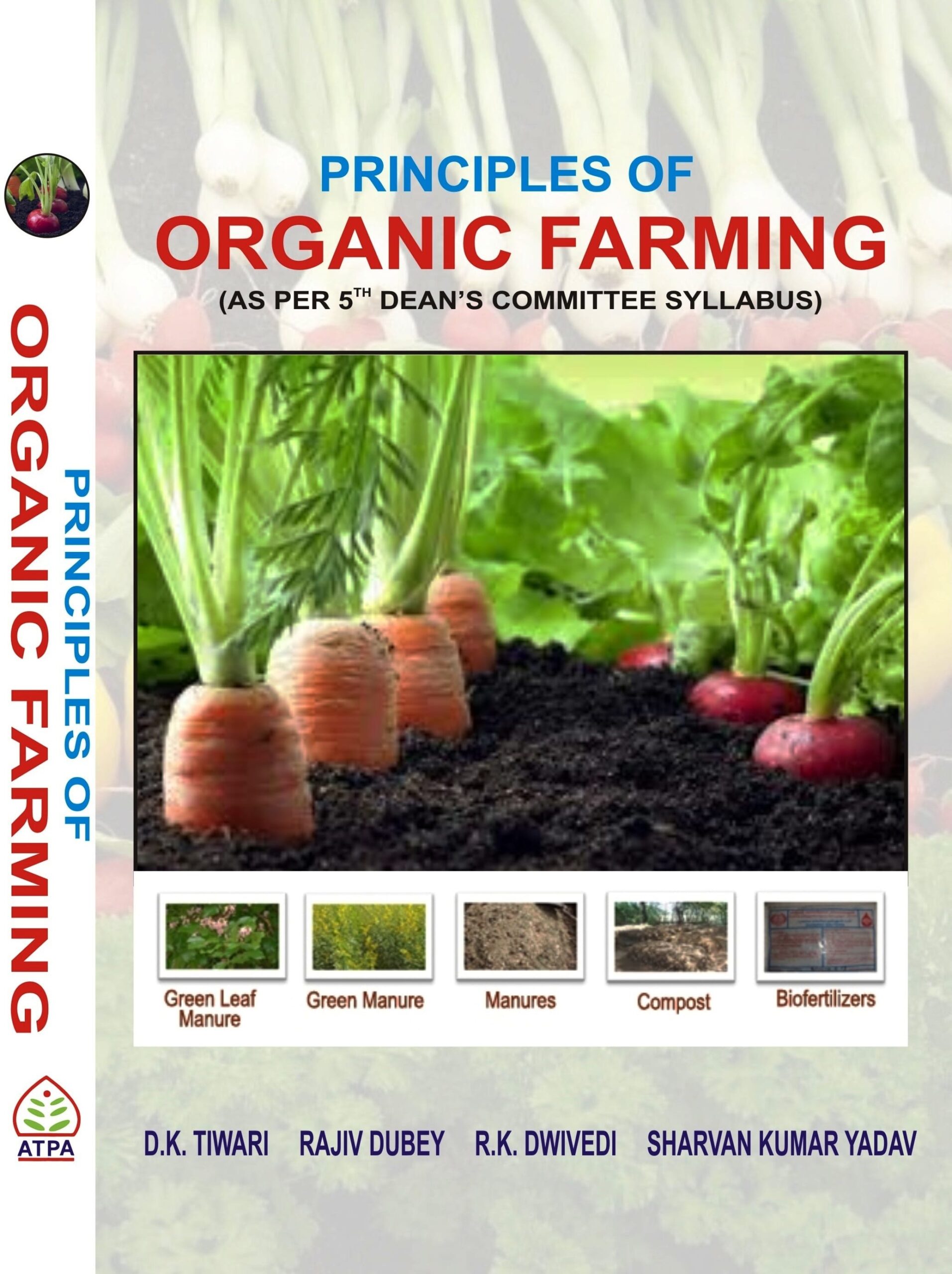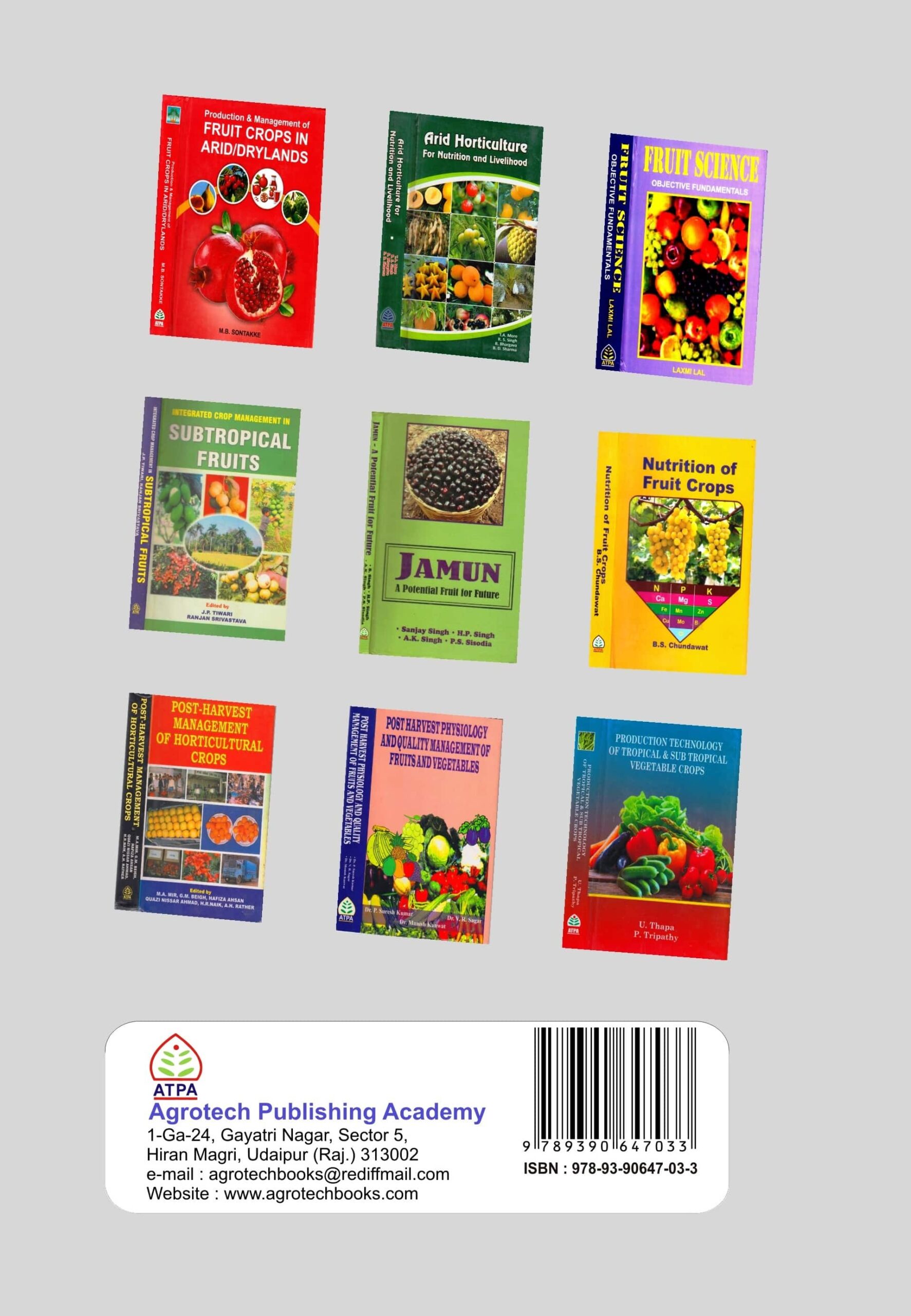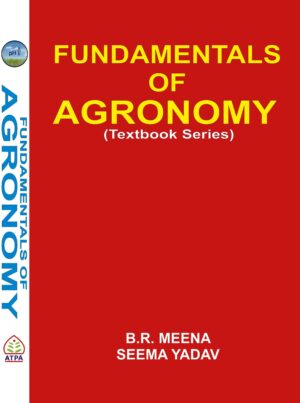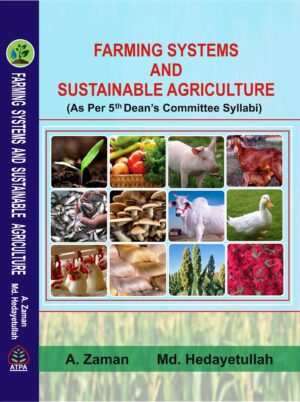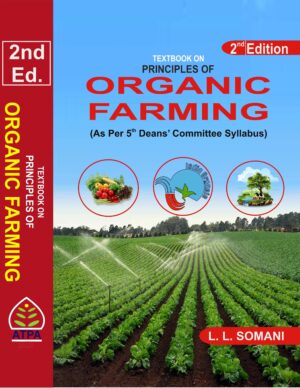PRINCIPLES OF ORGANIC FARMING
₹990.00
AUTHORS: D.K. TIWARI, RAJIV DUBEY, R.K. DWIVEDI AND SHARVAN KUMAR YADAV
PUBLISHING YEAR: 2021
ISBN: 9789390647033
© All Rights Reserved
Description
ABOUT THE BOOK
Natural commodityion can offer various qualities. These can include: a superior cost for better quality and lower input costs; crop expansion; better regular asset the executives; protection of biodiversity; further developed soil fruitfulness, and; less wellbeing hazards for FARMers and shoppers. Sending out natural items can be appealing for FARMers and their maker associations; the particular labelet sections (specialty labelets) offer the chance to accomplish better costs and secure a more advantaged labelet position. It is enticing (and regularly deceptive) to just glance at the benefits of entering the natural specialty labelets. To stay away from frustrations, it is important to get ready well and to have an arrangement and information on the key issues engaged with these fare labelets. Looking to the significance of natural cultivating the fifth Dean’s Committee of ICAR has presented a complete course at UG level entitled PRINCIPLES OF ORGANIC FARMING to set up our young people to trim the products of natural specialty labelets.
The course book covers idea and pertinence of natural cultivating in present setting; Organic commodityion prerequisites; Biological concentrated supplement the board natural excrements, vermin-treating the soil, green manuring, reusing of natural deposits, bio-composts; natural infections and irritation the executives utilization of biocontrol specialists, bio-pesticides, pheromones, trap crops, bird roosts; Weed the executives; and Quality contemplations, affirmation, naming and accreditation measures, labeleting, sends out. The book is written in a straightforward structure with cutting-edge data. It is a complete fundamental course book on natural cultivating framework and will explicitly meet out the necessity of the UG understudies of agribusiness and agriculture resources of all the SAUs. The writer would invite ideas from the perusers to further develop the course reading.
CONTENT
| S. NO. | TITLE | PAGE |
| Preface | 3 | |
| Syllabus | 4 | |
| About the book | 5 | |
| About the Author | 6 | |
| Literature Cited | 8 | |
| CHAPTERS | ||
| 1 | Introduction to Organic Farming Chemical Farming | 9-26 |
| 2 | Concept of Organic Farming | 27-31 |
| 3 | Scope of Organic Farming | 32-44 |
| 4 | Principles of Organic Farming | 45-59 |
| 5 | Promotion of Organic Farming | 60-64 |
| 6 | Organic Ecosystem and Biodiversity | 65-80 |
| 7 | Conversion to Organic Farming Management Principles | 81-88 |
| 8 | Choice of Crops and Varieties in Organic Farming | 89-95 |
| 9 | Organic Nutrient Resources | 96-168 |
| 10 | Restrictions to Nutrient Use in Organic Farming | 169-171 |
| 11 | Fundamentals of Pest Management in Organic Farming | 172-185 |
| 12 | Fundamentals of Insect Management in Organic Farming | 186-214 |
| 13 | Fundamentals of Weed Management in Organic Farming Weed Problems in Organic Farming | 215-228 |
| 14 | Safety and Quality of Organic Food | 229-232 |
| 15 | Certification Process & Standards of Organic Farming | 233-237 |
| 16 | Operational Structure of National Programme on Organic Production | 238-247 |
| 17 | Economics Considerations & Viability | 248-252 |
| 18 | Processing and Labelling | 253-257 |
| 19 | Marketing and Export Potential | 258-267 |
ABOUT THE AUTHORS
Dr Dileep Kumar Tiwari is working as Programme Assistant (Agronomy) at Krishi Vigyan Kendra, Barwani (MP). He did his M.Sc. (Ag) Agronomy from JNKVV, Jabalpur (MP) in 2002 and Ph. D. (Agronomy) from MGCGVV, Chitrakoot, Satna (MP) in 2013. More than 18 research paper published in national and International NAAS rated Journals.
Dr. Rajiv Dubey is working as Assistant Professor at K.N.K. College of Horticulture, Mandsaur (MP). He did his B.Sc. (Ag) and M.Sc. (Agronomy) from JNKVV, Jabalpur (M.P.) in 2006 and 2008, respectively. He acquired Doctorate from GBPUA&T, Pantnagar (U.K.). He received Best M.Sc. Thesis Award (2009-10) by Indian Society of Weed Science, Jabalpur and Young Scientist Award (2012) by Uttarakhand Council of Science & Technology, Dehradun for best Ph.D. research work. He qualified ICAR-NET (Agronomy) in 2010. He has been associated with extension activities, professional societies and published research papers in reputed National and International Journals and technical articles in reputed agricultural magazines.
Dr Rajesh Kumar Dwivedi is working as as Programme Assistant (Agronomy) at Krishi Vigyan Kendra, Damoh (MP). He did his M.Sc. (Ag) Agronomy from JNKVV, Jabalpur (MP) in 1998 and Ph. D. (Agronomy) from APSU, Rewa (MP) in 2005. More than 10 research paper published in national and International NAAS rated Journals.
Dr. Sharvan Kumar Yadav is working as Senior Research Fellow at Organic Farming Unit, ARS, MPUAT, Udaipur (Rajasthan). He did M.Sc. and Ph.D. in Organic Farming from UAS, Dharwad (Karnataka) and MPUAT, Udaipur (Rajasthan), respectively. He awarded Junior Research Fellowship and Senior Research Fellowship during M.Sc. and Ph.D. He has published various research papers in national and international reputed journal. He has participated and presented papers in various National and International conferences, seminar, symposium, workshop and congress held in India.
Additional information
| AUTHOR/AUTHORS | D.K. TIWARI, R.K. DWIVEDI, RAJIV DUBEY, SHARVAN KUMAR YADAV |
|---|---|
| PAGES | 268 |
| BINDING | Hard Back |
| PUBLICATION YEAR | 2021 |

